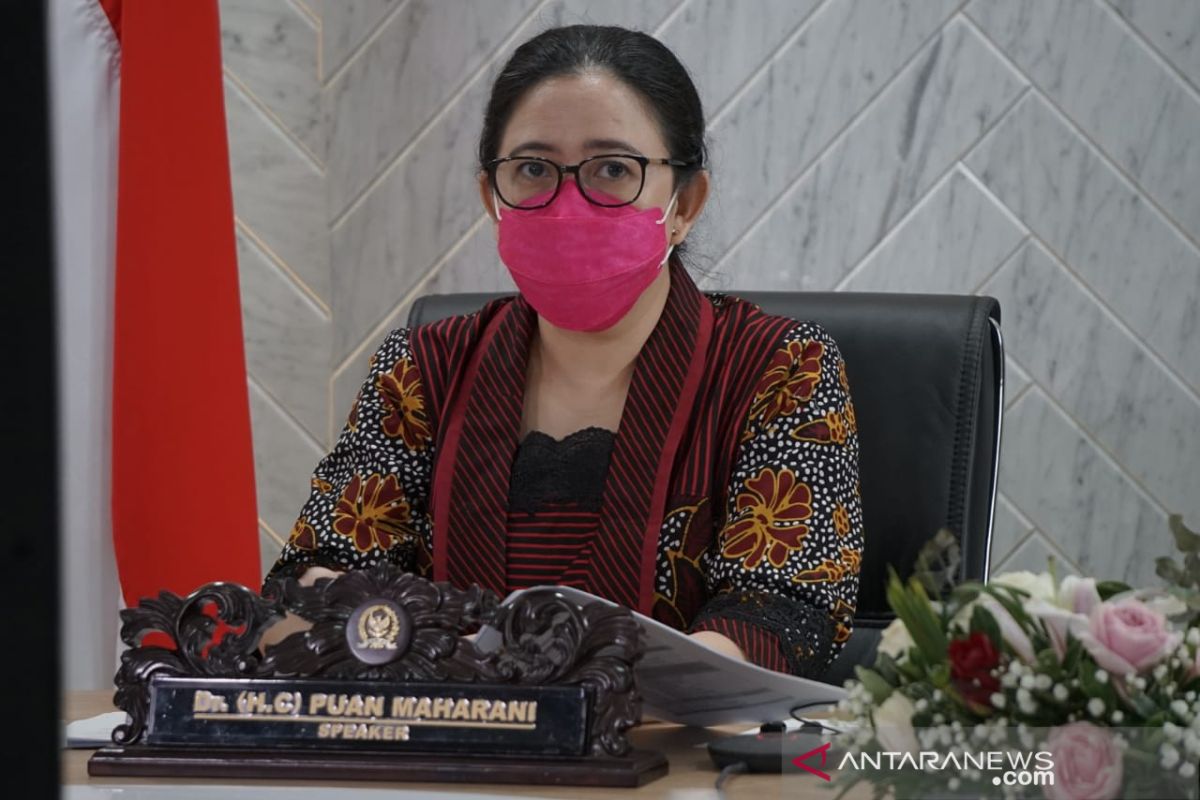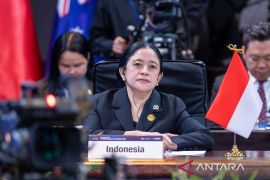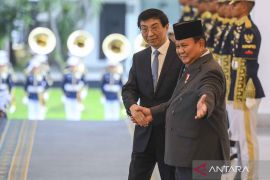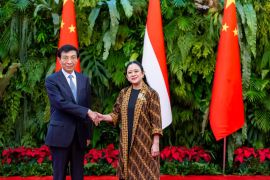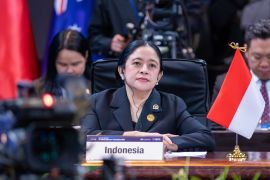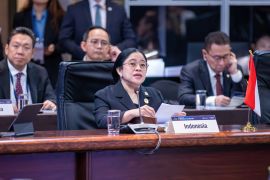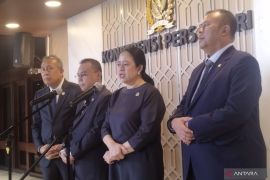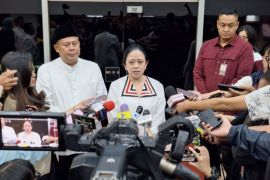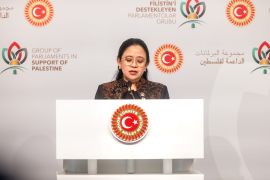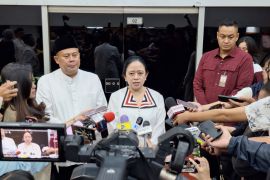The example set by Islamic school students (santri), who love the country, is expected be the driving force to fuel our aspirations to continue to work together to develop IndonesiaJakarta (ANTARA) - House of Representatives’ Speaker Puan Maharani pinned high hopes on the commemoration of Santri Day offering the necessary momentum to continue to maintain unity and strengthen mutual cooperation in facing various present and future challenges.
Maharani noted that Santri Day was observed as a mark of respect for the services of Islamic school students in the struggle for independence.
"The example set by Islamic school students (santri), who love the country, is expected be the driving force to fuel our aspirations to continue to work together to develop Indonesia," she noted in a statement, here on Thursday.
According to Maharani, the Santri Day commemoration stipulated in Presidential Decree No. 22 of 2015 was based on religious advice or fatwa and refers to the call for jihad, or resolution, to defend the independence of the Republic of Indonesia.
The house speaker noted that the resolution was a fatwa issued by KH Hasyim Asy'ari and other Muslim clerics in response to President Sukarno's question regarding the law to defend the country.
"We must strengthen this spirit, specifically togetherness in facing the COVID-19 pandemic. The House of Representatives is optimistic that the students would be willing and able to act as the agents of change," she affirmed.
Maharani urged all elements of society to work together to deal with the COVID-19 pandemic, including the students, which are an important element in maintaining the values of mutual cooperation in dealing with the problem.
She highlighted the Indonesian Parliament’s commitment to supporting Islamic boarding schools through their functions and duties. One of the legislative products that is expected to support the course of the education process in Islamic boarding schools is the Law on Islamic Boarding Schools, and the government is encouraged to immediately issue derivative regulations from this law.
"With the derivative regulation of the Islamic Boarding School (Pesantren) Law, it is hoped that pesantren would become more developed through affirmation programs and facilities, such as flats for pesantren, pesantren health centers, and vocational education in Islamic schools," Maharani stated.
Deputy Chairman of the People's Consultative Assembly (MPR), Syarief Hasan, had earlier assessed that Pesantren, or Islamic boarding schools, depicted Indonesia's diversity.
In addition to being a hub for religious knowledge, Islamic boarding schools are a melting pot for santri, or the Islamic school students, hailing from diverse ethnic backgrounds and social standing.
"This is something that is a commonplace and normal for them. This is what I call a boarding school is a real portrayal of Indonesia's diversity. If you want to observe how the Indonesian people practice diversity, then look at the boarding school," Hasan noted in a statement, Wednesday.
This statement was made during a meeting of national figures at the Roudhotul Muta'allimin Islamic Boarding School, Sukanagalih, Cianjur District, West Java, on Tuesday (Oct 20).
Indonesia’s official national motto of Bhinneka Tunggal Ika, or Unity in Diversity, refers to the variety in the country’s internal composition, but despite all, the Unitary State of the Republic of Indonesia (NKRI) has stood united.
Related news: President departs for Southeast Sulawesi to inaugurate sugar factory
Related news: President Jokowi accepts letters of credentials from seven ambassadors
EDITED BY INE
Translator: Imam B, Azis Kurmala
Editor: Fardah Assegaf
Copyright © ANTARA 2020
